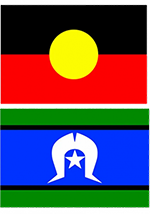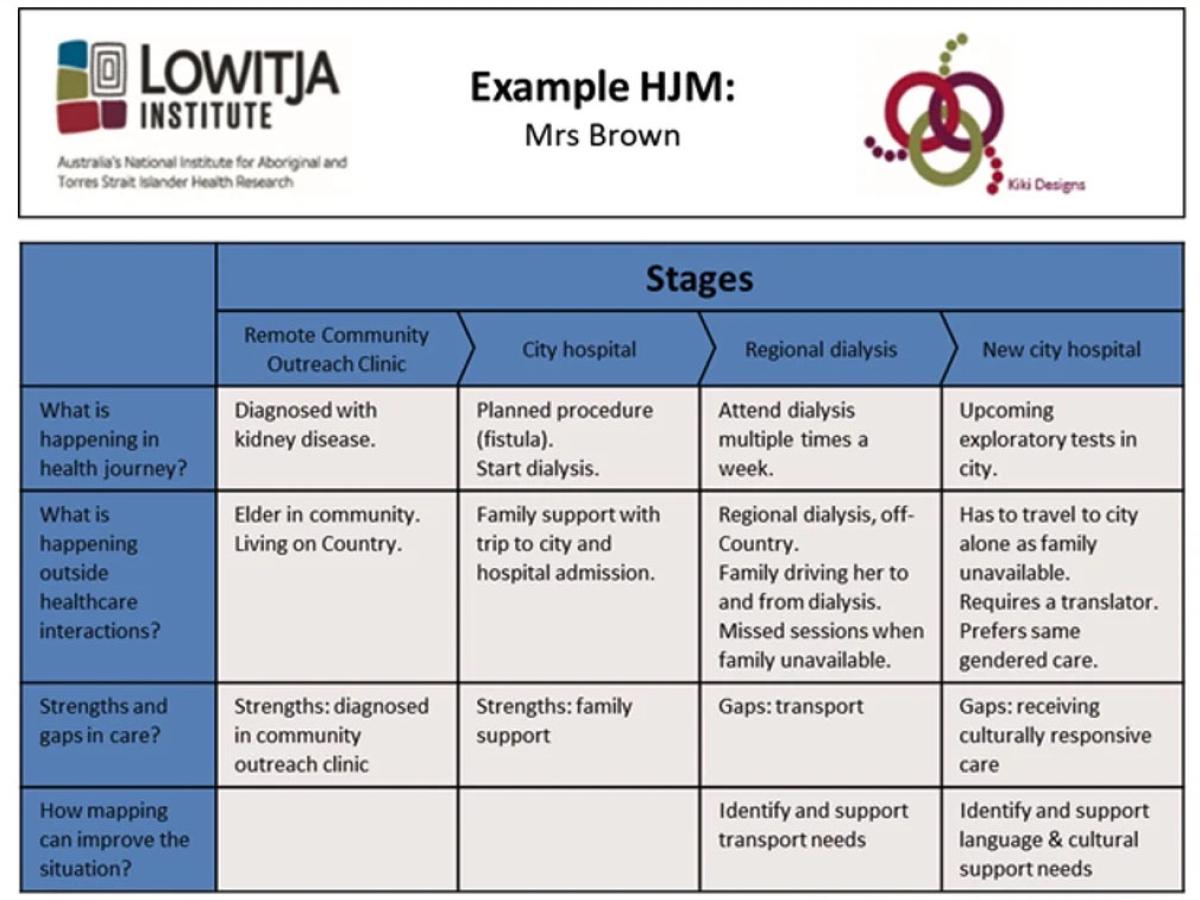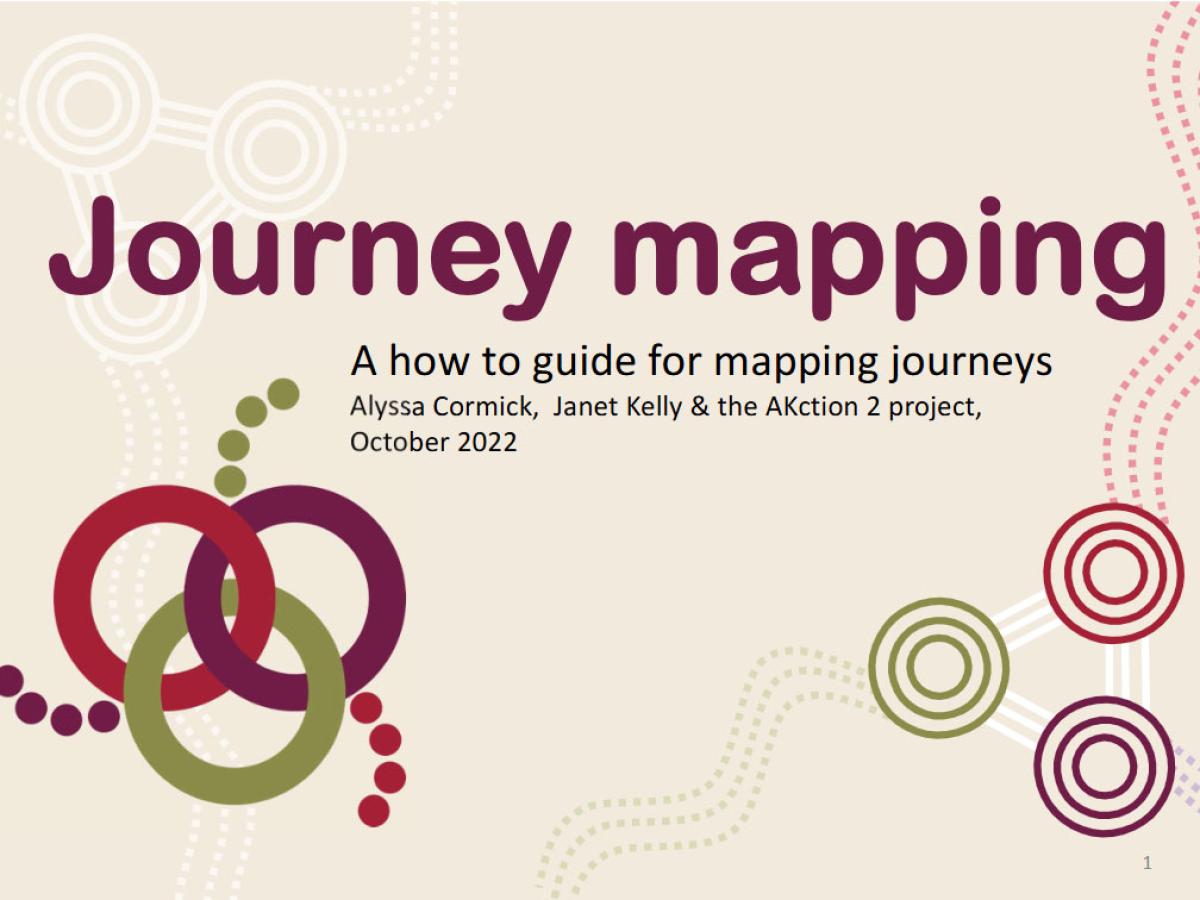Mapping Journeys for Health and Wellbeing
Acknowledgement
We acknowledge the Kaurna people as the Traditional owners, carers of the Tarntanyangga, (Adelaide Plains, South Australia). We acknowledge all Aboriginal and Torres Strait Islander people of Australia whose sovereignty remains unceded and who we each remain accountable to.
We acknowledge First Nations People worldwide and pay our deepest respect to you and your families. We also acknowledge community supporters, researchers and health professionals, effective accomplices who know when to step aside, step up and step back to ensure our voices are amplified to lead change.
This webpage is a hub for people to get information about journey mapping activities, resources, and examples and connect with one another.
The mapping journeys for health and wellbeing project aims to evaluate the use and implementation of existing journey mapping tools.
Through community engagement and consultation with participants who have previously engaged in journey mapping activities, the project will evaluate existing tools, develop case studies to provide examples, and develop new resources or activities based of consumer feedback to improve access through phase engagement over time.
-
About the project
What is journey mapping?
Journey mapping is the process of describing and recording different stages of health journeys. Journey Mapping is a culturally safe and informed approach, appropriate for use with First Nations People, applying a holistic and whole of life approach. Journey mapping enables all aspects of journeys to be recorded, including biomedical, social, emotional, spiritual, cultural, financial, access, and environmental factors.
Mapping activities can be conducted before during or after journeys to plan, analyse or assess provision of healthcare. Individual patient experiences, composite journeys, or healthcare services can be mapped. Multiple perspectives can be incorporated into maps including patients, family, and healthcare professionals, providing an illustration of people’s experiences. Once mapped journey maps may then be shared with family and friends; analysed for research; or compared with and evaluated against existing guidelines, standards and models of care for continuous quality improvement.
Journey mapping can be used to support culturally safe experiences for First Nations People, providing collaborative, person centred, and whole of life approaches, that enable First Nations People to hold authentic roles within their healthcare journeys self-identifying strengths and gaps in care and how they can best be addressed.
Our journey mapping story
Timeline Activities 2008 Underlying Approach
Our mapping activities applying an underlying Participatory Action Research (PAR) and Aboriginal Participatory Action Research (APAR) approach, of Look & Listen, Think & Discuss, Take Action Together, and Reflect (Kelly, 2008). Mapping activities are structured by these four cyclical steps, enabling approaches to be person centred, iterative, flexible, and reflective, responding to and learning across each cycle.
2008-2015 Managing Two Worlds Together (MTWT)
Our research team, led by Professor Janet Kelly, began journey mapping activities in 2008 with the Managing Two Worlds Together (MTWT) project. The MTWT aimed to support journeys of Aboriginal Patients traveling from rural and remote areas to city hospitals. This project resulted in the codesign of a patient journey mapping tool, resources and case studies.
2020-2022 Health Journey Mapping (HJM)
In 2020, the team began the Health Journey Mapping (HJM) project, initially aimed at assessing the usability of the MTWT, leading into development of three new journey mapping tools, with educational resources, and worked examples. Both the MTWT and HJM projects were funded by the Lowitja Institute, and can be found on the Lowitja webpage.
2019-2026 AKction1 & 2 Kidney Journey Mapping Activities
In 2019-2020 the AKction 1 research project, led by Kim O’Donnell and Janet Kelly, incorporated patient journey mapping activities to explore the perspectives of First Nations patients, family members, staff and services in kidney care. In 2021-2026 patient journey mapping was a sub study of the AKction2 research project mapping.
Members of the research team have also bee involved in teaching journey mapping concepts to students within the University of Adelaide Health and Medical Science courses, including students within the Adelaide Nursing School.
Ongoing Collaborative Journey Mapping Activities
The MTWT and HJM mapping resources have been used or adapted for use in a range of mapping projects including at Flinders Eye Centre, Adolescent Transition clinic, RAH Rheumatology, and mapping the journeys of women with disabilities who have experienced violence.
Our research team have also been involved in a number of other collaborative research projects including ALO project (2018-2024), patient journey mapping scoping review (2021-2022), and the NIKTT Compass journey mapping (2023-2024).
2024-ongoing Mapping journeys for health and wellbeing
The mapping journeys for health and wellbeing project now wishes to build upon these previous journey mapping activities, aiming to evaluate existing mapping tools and support ongoing implementation of journey mapping activities.
Values and principles of our mapping projects
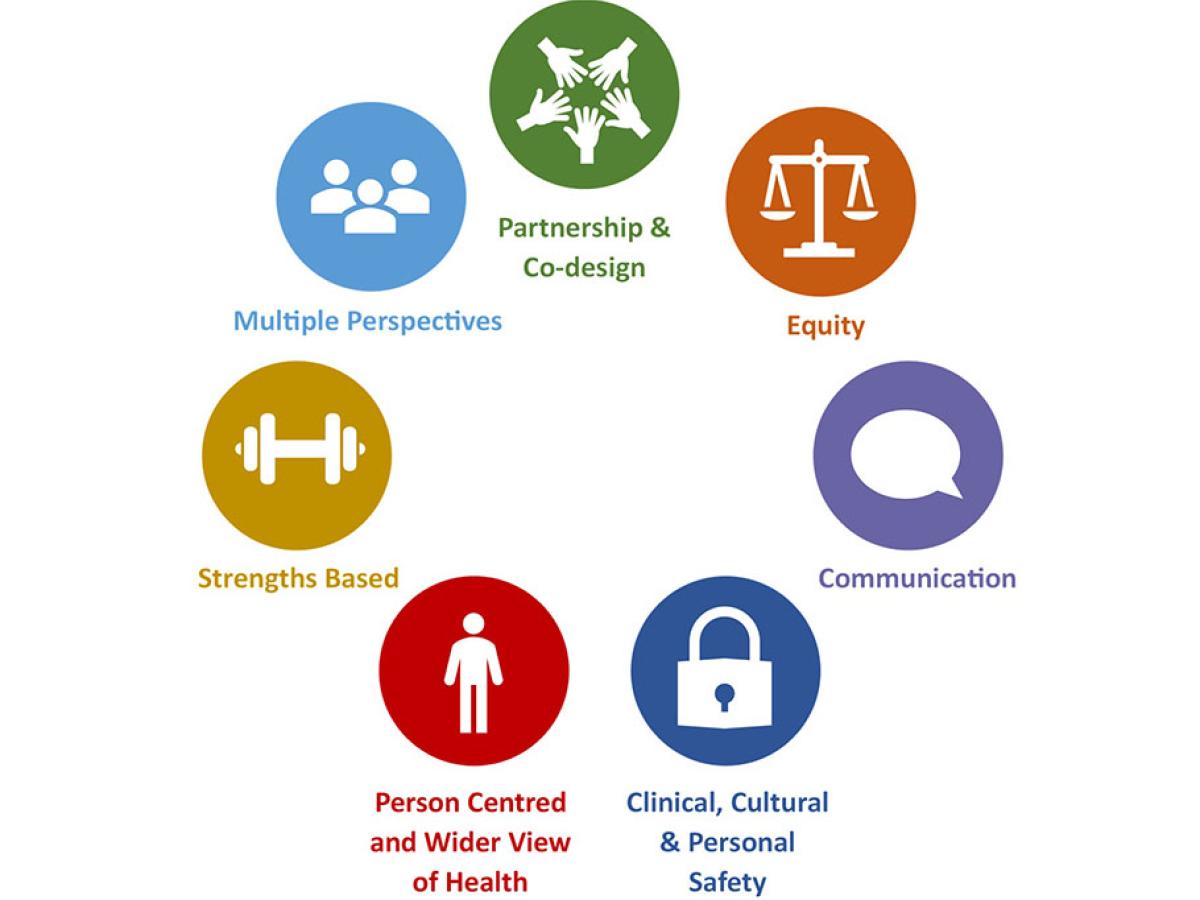
Equity
- Recognising individuals and systemic challenges
- Not everyone starts at the same starting point with the same resources available
- Not blaming people for the positions they find themselves (patients, families, communities, health and support staff)
- Additional resources may be required to achieve the same health outcomes
Strengths based
- Clinician, family, community, individual, strengths, skills, and experiences
- What’s in your/their toolkit
Partnership and codesign
- Building relationships
- Collaboration- working together to improve things
- Nothing about us without us
- Involving relevant key stakeholders
Multiple perspectives
- Health services, system, communities and journeys are complex, often there are individual episodes of good care, but this is not always supported or coordinated across the entire health system
Communication
- Dadirri – deep listening
- Holding space
- Non judgmental
- Language, art, nonverbal, communication aids
- Knowledge translation, communicating outcomes
Person centred and wider view of health
- Centring on lived experiences, perceptions, needs and priorities
- Focusing on individual’s journeys moves beyond individual episodes of care
- Contextual and environmental
- Determinants of health and levels
Clinical, cultural and personal safety
- No blame no shame
- Avoiding assumptions
- CQI, reflective practice
- Identifying gaps in order to improve care
-
Research team
Professor Janet Kelly
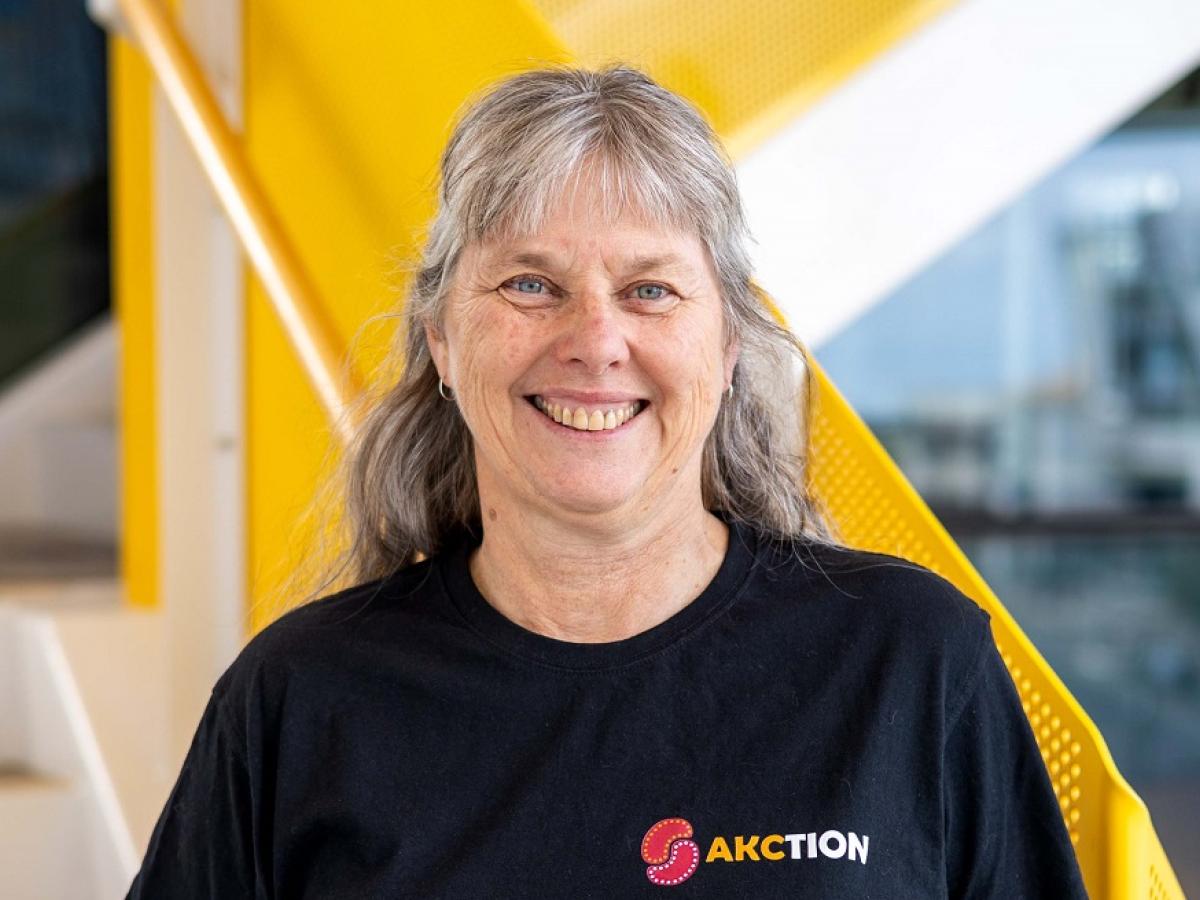
Associate Professor Janet Kelly is a nurse researcher and course coordinator focused on improving health care and outcomes for and with Aboriginal people. She has led the MTWT and HJM projects, co-designing flexible and adaptable journey mapping tools that identify barriers and enablers, gaps and strategies in care. These tools are increasing being used for quality improvement, reflective practice, education and training in renal care, cardiac care, nursing, midwifery and medicine.
Dr Kim O'Donnell
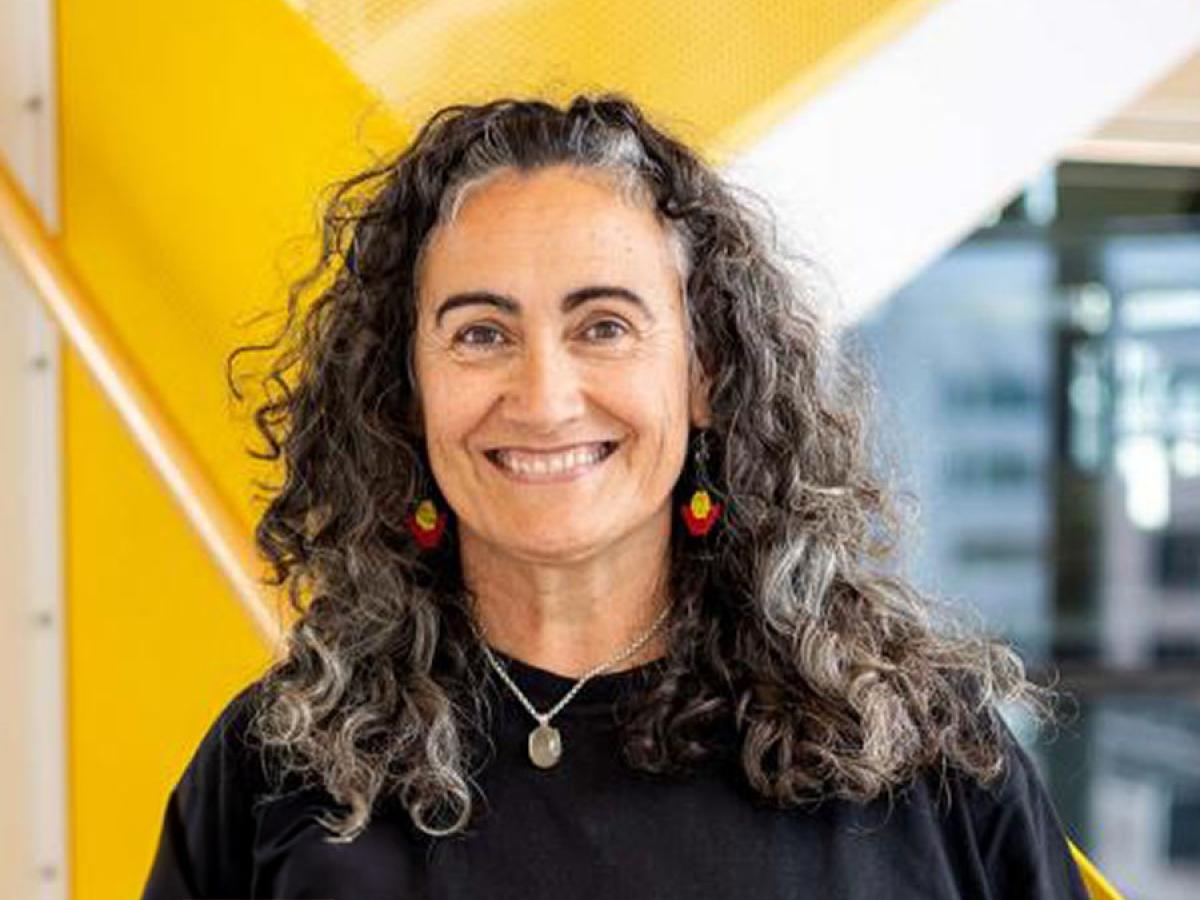
Kim is a Barkindji/Malyangapa woman from far Western NSW, and a Senior Researcher in Aboriginal Health Care Research. Kim is a Public Health researcher with extensive understanding and experience working with Australia’s First Peoples in education, health, and governance. Kim is passionate about the development of equitable partnerships between Aboriginal and Torres Strait Islander people and corporate organisations to improve the health and wellbeing of Australia’s First Peoples.
Alyssa Cormick
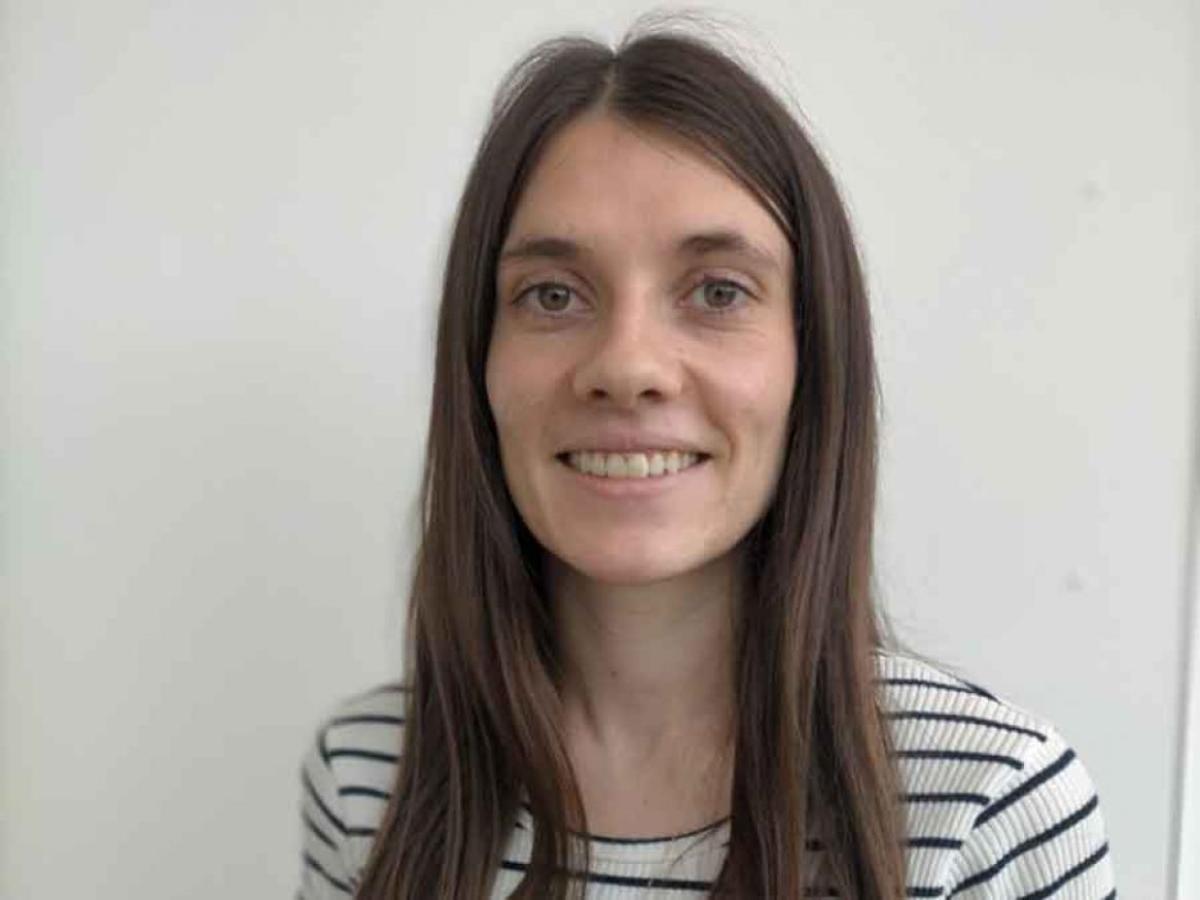
Alyssa is a non-First Nations researcher and provisional psychologist who has worked with the team on multiple mapping activities, including co-design and implementation of the HJM project. Alyssa completed her psychology honours research project mapping the journey of an Aboriginal woman with kidney disease, and has since mapped and supported mapping activities with multiple other participants.
Tahlee Stevenson
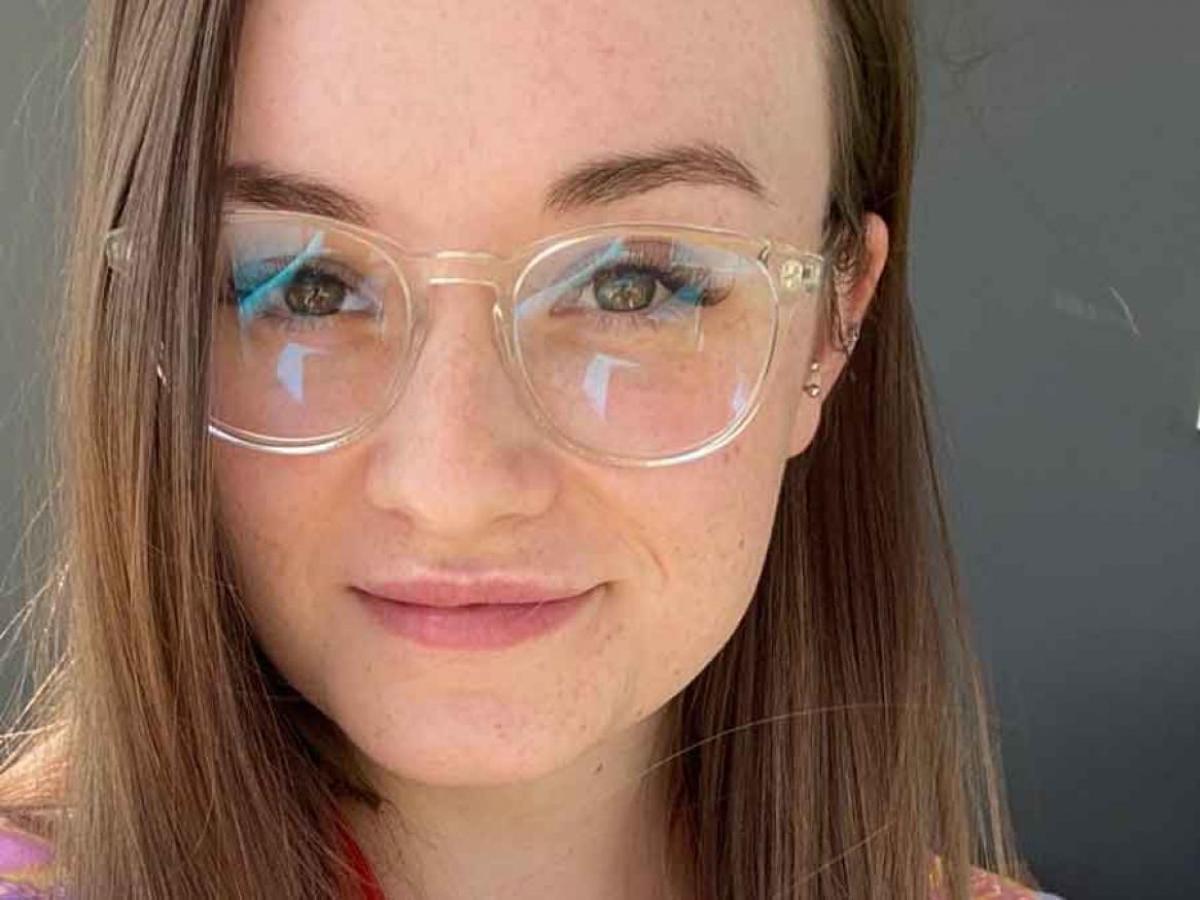
Tahlee is a Registered Nurse and Researcher from South Australia. She has worked with the AKction team from the University of Adelaide since 2018, focusing on improving health journeys and outcomes for Indigenous Australians and imbedding cultural safety within clinical care. She has a public health background and is passionate about improving access to health services and achieving health equity for all.
Rhanee Lester
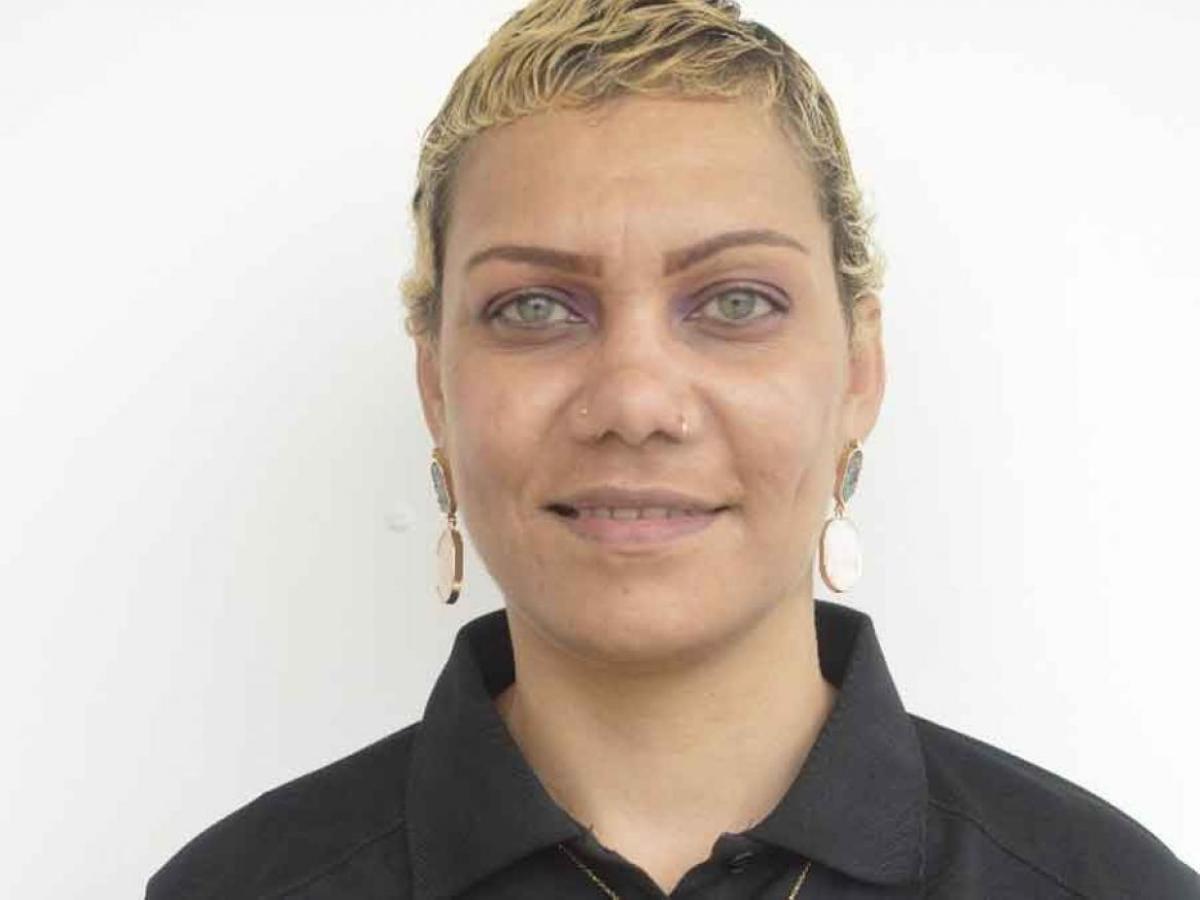
Rhanee Lester is an Adnyamathanha woman with family and community ties to Port Augusta and the Northern Flinders Ranges in South Australia.
Dr Zaneta Smith
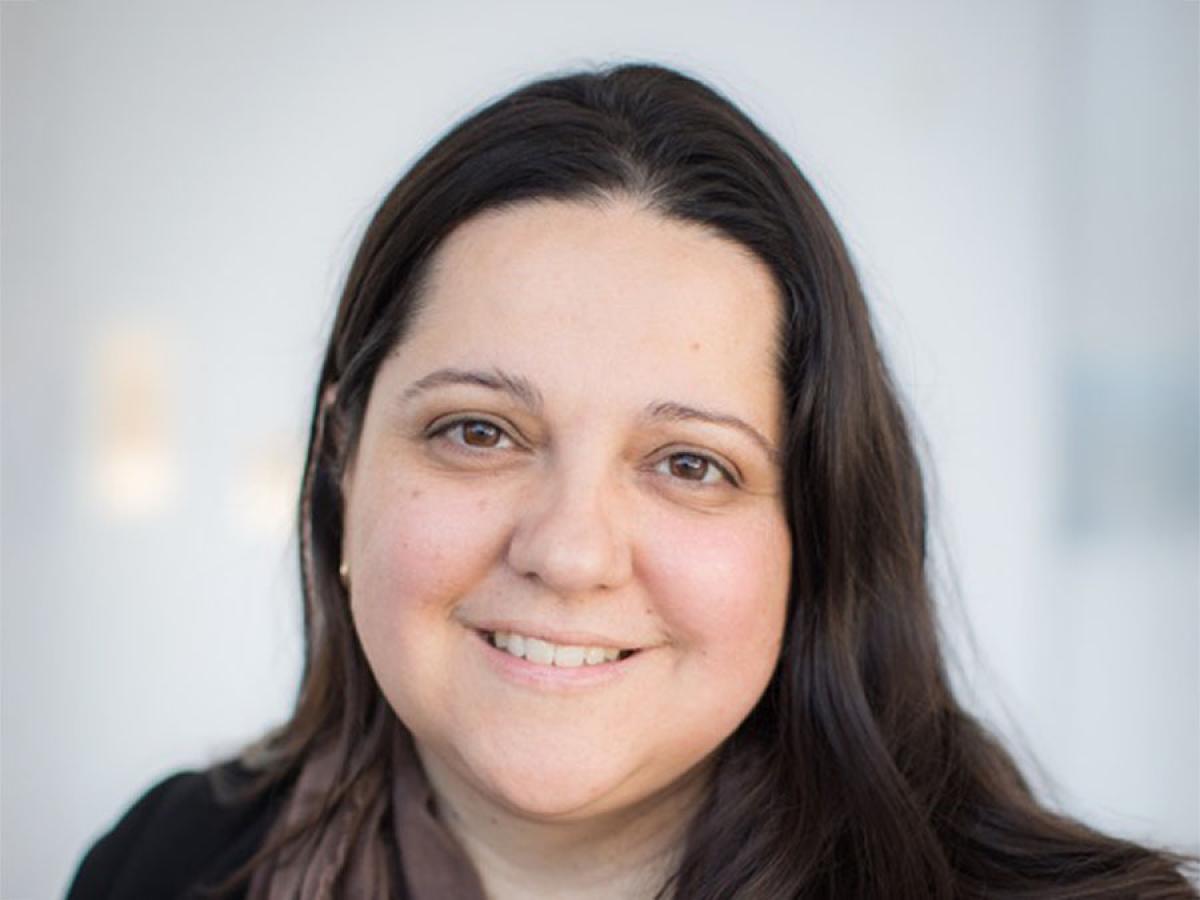
Dr Zaneta Smith is Senior Lecturer and former Post Registration Program Coordinator within the Adelaide Nursing School at the University of Adelaide. Zaneta is a Registered Nurse with 30 years of professional nursing experience and has undertaken various nursing roles within management, teaching and research.
Associate Professor Ellen Davies
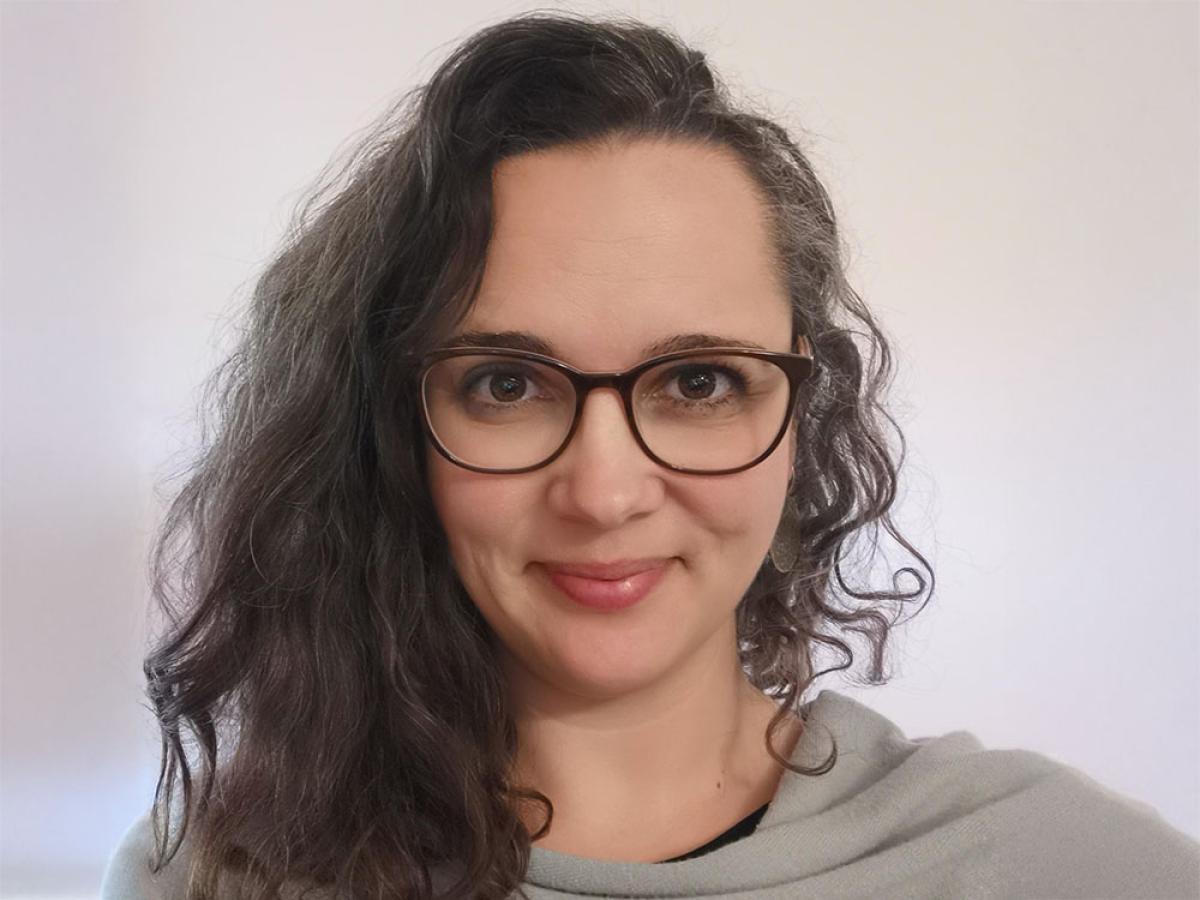
Associate Professor Ellen Davies is the Research Program Lead for Adelaide Health Simulation (AHS), Faculty of Health and Medical Sciences, The University of Adelaide. She has also contributed to research in journey mapping, leading a scoping review on patient journey mapping in healthcare and co-authoring a publication on patient journey mapping methodologies.
Brandon O'Connor
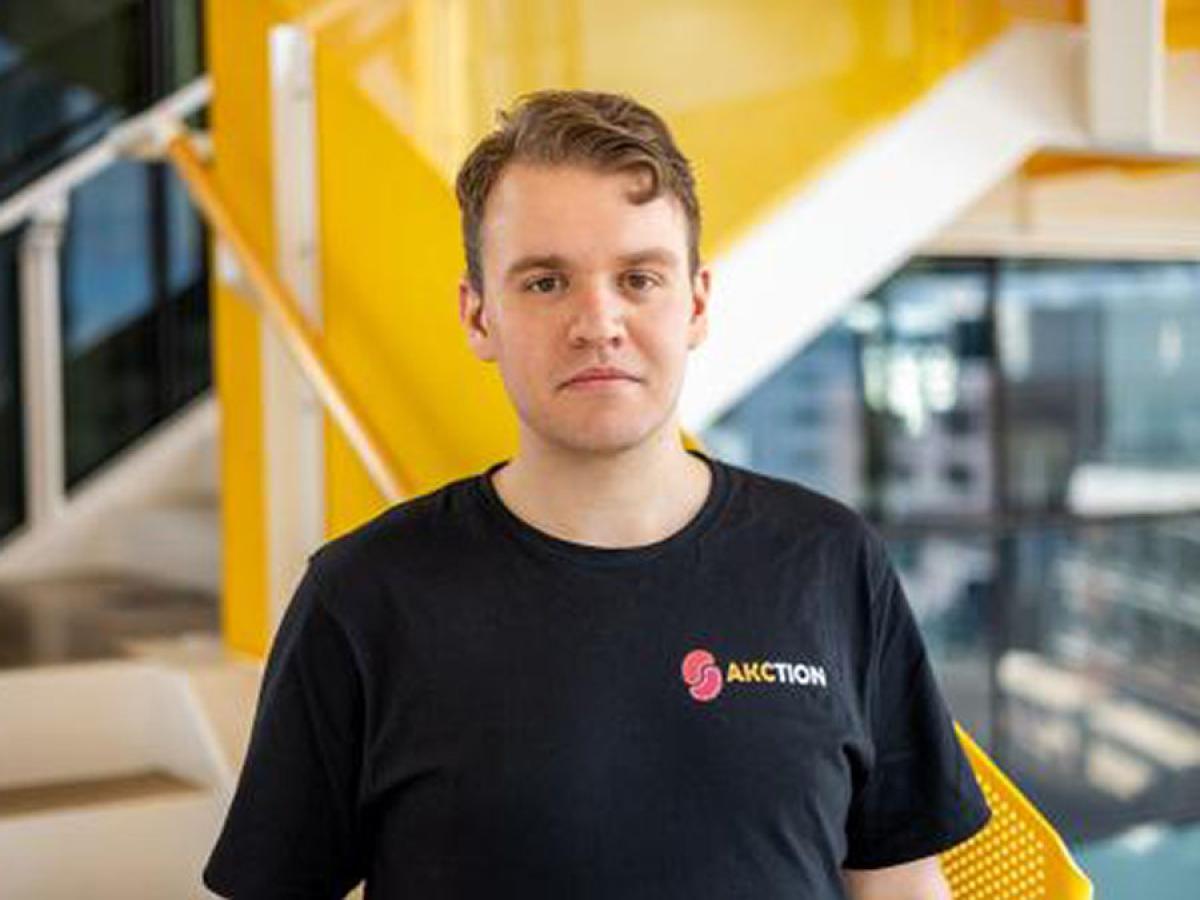
Brandon is an administration assistant for the AKction2 and the Mapping Journeys for Health and Wellbeing research projects.
-
Our research
Our research team have been involved in a number of journey mapping research projects. This has included projects which have mapped journeys, codesigned journey mapping tools and resources, and supported implementation of journey mapping activities. Journey mapping tools and resources, developed by our research team, have additionally been adapted and used in a number of collaborative research projects.
Journey mapping resources & implementation
Managing Two Worlds Together (MTWT)
Funded by the Lowitja Institute, the Managing Two Worlds Together (MTWT) project investigated what works well and what needs improvement in the health system for Aboriginal people who travel for hospital and specialist care from rural and remote areas of South Australia and the Northern Territory to city hospitals.
Funded by SA Health and the Lowitja Institute and associated CRCs, the project evolved over three stages:
- Stage 1 (2008–11) focused on understanding the problems (City hospital care for country Aboriginal people)
- Stage 2 (2012) focused on possible solutions and strategies
- Stage 3 (2013–15) develop tools for use in cardiac, maternal, renal care, remote and city sites (Aboriginal Patient Journey Mapping Tools project)
The project resulted in development of the MTWT patient journey mapping tool, two workbooks, multiple published case studies, and two peer reviewed journal articles.
Find out more
View an article that describes the coproduction of the patient journey mapping tool in more detail.
Health Journey Mapping (HJM)
The Health Journey Mapping (HJM) project was funded by the Lowitja Institute from 2021-2022. Initially aimed at evaluating implementation of the MTWT tool, the project resulted in co-design of three health journey mapping tools (clinical, detailed and strategic), educational materials and worked examples. The project followed a participatory action research (PAR) approach with four repeated cycles of look and listen, think and discuss, and take action together. The first PAR cycle included a literature search and survey reviewing accessibility and usability of the MTWT tool and resources. First Nations patients and families, and First Nations and non-first Nations researchers, hospital and university educators, and healthcare professionals (end users) then reviewed and tested prototypes of a new journey mapping tool, providing feedback which informed design. The final tools and resources were then trailed by end users.
Find out more
View an article describing codesign process of collaboratively developing the health journey mapping tools and resources with end users.
Journey mapping activities
AKction 1 and 2
Our research team have been involved in mapping kidney health journeys as part of the AKction1 (2018-2021) and AKction2 (2021-2026) research projects.
Within the AKction 1 research project patient journey mapping was conducted from perspective of patients, family members, staff and services to explore the stories and experiences of people with lived experience of kidney disease and improve health care services in South Australia and beyond.
Patient journey mapping is a key substudy within the AKction 2 research project, with multiple journeys of Aboriginal people with lived experience of kidney disease being mapped, aiming to better understand and support patient experiences informed by those with lived experience
Collaborative research projects
Our research team have collaborated with multiple health services and research teams to conduct journey mapping activities. These include:
- The Flinders Eye Centre, SALHN
- adolescents transitioning between child and adult services
- women with disabilities who have experienced violence through healthcare system
- pregnancy journeys
- kidney health and peer navigator journeys.
-
How to map journeys
Our mapping activities applying an underlying Collaborative Participatory Action Research (PAR) approach, of Look & Listen, Think & Discuss, Take Action Together, and Reflect (Kelly, 2008). Mapping activities are structured by these four cyclical steps, enabling approaches to be person centred, iterative, flexible, and reflective, responding to and learning across each cycle.
The steps
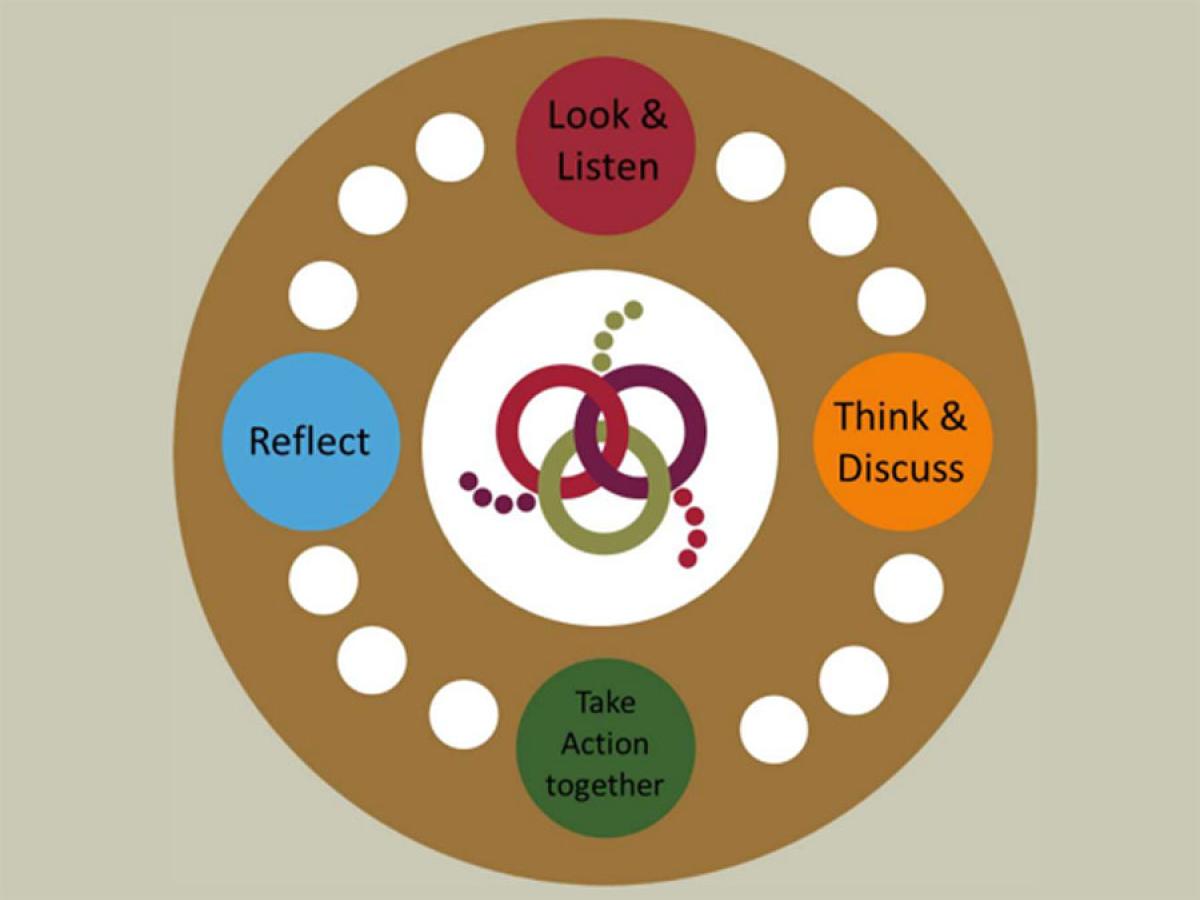
1. Look & listen
2. Think & discuss
3. Take action together
4. Reflect
The guide
Journey mapping 'how to' guide
'Journey mapping: A how to guide for mapping journeys', provides a step by step guide on how to conduct journey mapping following this cyclical approach.
-
Resources and examples
Mapping Resources
Managing Two Worlds Together (MTWT)
The MTWT project resulted in development of a patient journey mapping tool, workbooks, and case studies. These can be freely accessed through the Lowitja Institute.
Health Journey Mapping (HJM)
The HJM project resulted in development of three different journey mapping tools with different purposes.
The Health Journey Mapping tools and resources can be accessed freely from the Lowitja Institute learning hub, by becoming a member of the Lowitja Institute.
For more information on accessing the HJM tools, see our pamphlet.
Access HJM resources View HJM pamphlet
Journey mapping 'how to' guide
See our workbook with kidney journey mapping tools, providing step by step guide on journey mapping.
Steps for conducing patient journey mapping
In the article Patient journey mapping: emerging methods for understanding and improving patient experiences of health systems and services by Bulto and colleagues, figure 1 identifies 6 steps for conducting patient journey mapping, 6 different types of mapping, and four method options.
Publications
Peer review journal articles
Title Author Focus Patient journey mapping: emerging methods for understanding and improving patient experiences of health systems and services Bulto, Davies, Kelly, & Hendriks, 2024 Introduces six key steps for conducting patient journey mapping and describes the opportunities and benefits of using patient journey mapping
Reporting and conducting patient journey mapping research in healthcare: A scoping review Davies, Bulto, Walsh, Pollock, Langton, Laing, Graham, Arnold-Chamney, Kelly, 2022
Scoping review on patient journey mapping in healthcare
Co-designing a Health Journey Mapping resource for culturally safe health care with and for First Nations people Cormick, Graham, Stevenson, Owen, O’Donnell, Kelly, 2024 A methodology paper, describing the codesign process of the HJM tools and resources, linking the resources to continuous quality improvement and accreditation standards to enhance uptake in healthcare settings
Renal healthcare: Voicing recommendations from the journey of an Aboriginal woman with chronic kidney disease Cormick, Owen, Turnbull, Kelly, & O’Donnell, 2022 An example of applying the Strategic Health Journey Mapping tool to map the health journey of an Aboriginal woman with kidney disease, using journey mapping results to voice recommendations from her health journey to improve care Using Mapping Tools to Improve Aboriginal Patient Journeys Kelly, 2017 Coproducing Aboriginal patient journey mapping tools for improved quality and coordination of care Kelly, Dwyer, Mackean, O’Donnel, & Willis (2017) Other publications
Title Author Focus Health Journey Mapping: having a yarn about health Graham & Cormick Op Ed in Croakey Health Media describing codesign and application of HJM project
Student Projects
Student Date Course Project Description Veda Mitra 2024 Nursing Honours Veda's research project explored the experiences of Aboriginal and Torres Strait Islander people with chronic kidney disease during the COVID-19 pandemic. She applied patient journey mapping to illustrate results and show each participants' journey. See information poster. Millicent Baker 2024 Nursing Honours Millicent conducted a qualitative research project exploring the experiences of Aboriginal patients following their discharge post renal transplantation in South Australia. This included interviewing and journey mapping two Aboriginal people with recent experiences of kidney transplantation. See information poster. Ayleen Castro 2024 Nursing Honours Ayleen conducted a qualitative research project exploring the experience of South Australian Aboriginal Patients following confirmation of their kidney transplantation until their discharge. The project included interviewing and mapping the journey of two Aboriginal patients who had recent experiences of kidney transplantation. See information poster. Alyssa Cormick 2021 Psychology Honours Alyssa collaboratively mapped the health journey of a female AKction reference group member using a strengths-based and whole of life approach. Identified strengths and resilience throughout the participants health journey, discussed social and emotional wellbeing, and identified implications for psychologists and renal healthcare workers. Terry Kai Loon Lau 2021 3rd year Health and Medical Science As part of a Third year Health and Medical Science Research project, conducted with AKction 1, Terry mapped a ‘Typical’ Healthcare Journey on Kidney Transplantation for Adult Indigenous Australian Renal Patients in South Australia and made an informational poster. This project can help increase awareness of kidney transplantation processes and inform future mapping. Ejaz Nijadi 2021 3rd year Health and Medical Science As part of a Third year Health and Medical Science Research project, conducted with AKction 1, Ejaz mapped a Typical Health Journey for Indigenous Patients with Chronic Kidney Disease onto Dialysis and made an informational poster. This mapping highlights challenges, treatment options and lifestyles alteration experienced by newly diagnosed Indigenous dialysis patients Basil Abou-Assali 2019 Honours Health and Medical Science Worked with the AKction team and Reference Group members and Aboriginal kidney patients to identify gaps and strengths in current kidney care as a part of his honours research project. -
Contact us
If you are interested in journey mapping and would like assistance with accessing or engaging with our journey mapping resources please follow the steps below:
- Read through our how to map journeys page
- Read through our resources and examples of journey mapping
- Fill out the EOI form or contact our team at mappingjourneys@adelaide.edu.au
Expression of interest form

